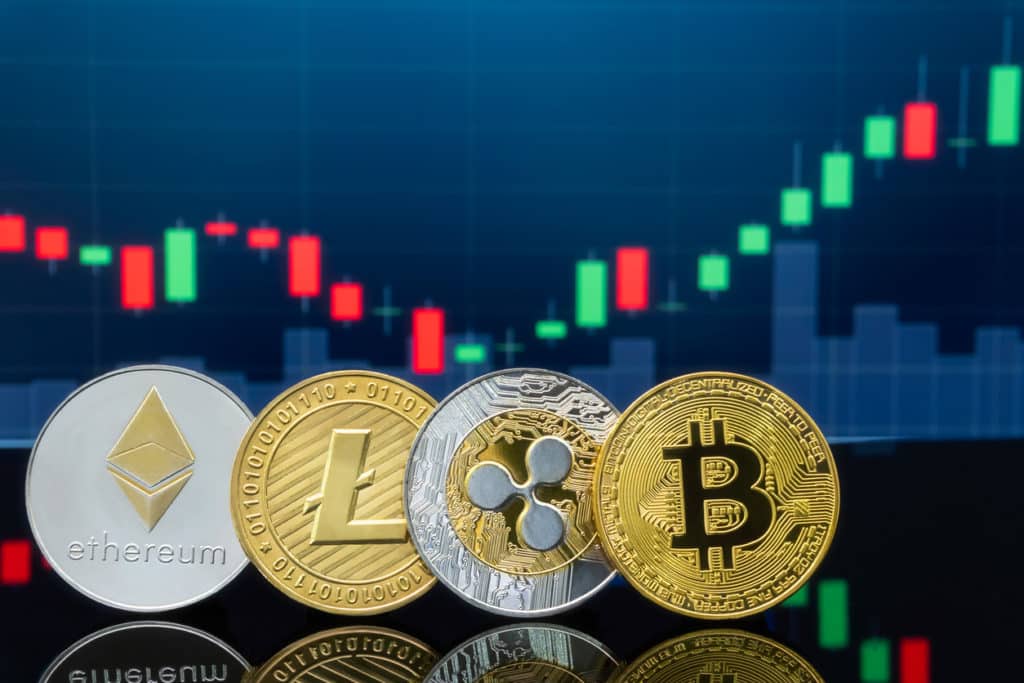
Jamil Nazarali, CEO of cryptocurrency spot exchange EDX Markets, said that setting separate quotes for retail and institutional investors will allow for tighter prices and better execution. He said that this would be a differentiating factor.
Nazarali, who previously served as global head of business development at Citadel Securities, told Markets Media that his years of experience in traditional finance and introducing new innovations are invaluable.
In June of this year, EDX Markets announced the launch of a digital asset market and the completion of an investment round with a new equity partner. Initial products traded on EDX include Bitcoin, Ethereum, and Litecoin And Bitcoin Cash.
Nazarali said EDX's differentiator is that it provides personalized quotes to retail and institutional investors, as well as greater transparency by providing full book details.

Jamil Nazarali, EDX Market
“Our retail-only offering will benefit participants with price tightening due to the involvement of multiple market makers,” he added.
The company recently completed a new funding round with the addition of strategic investors including Miami International Holdings and market makers DV Crypto, GTS, GSR Markets LTD, and HRT Technology. They join founding investors including traditional financial firms such as Charles Schwab, Citadel Securities, Fidelity Digital Assets, Paradigm, Sequoia Capital, and Virtu Financial.
Transactions are netted and settled on the blockchain, increasing speed and efficiency at lower costs and eliminating the need for expensive bilateral payments. Similar to traditional finance, assets are held in a network of independent digital custodians.
EDX does not require regulatory approval to operate a spot cryptocurrency exchange, but there are plans to launch a clearinghouse that would require regulatory approval. EDX Clearing clears matched trades on the EDX Market, allowing participants to benefit from enhanced price competition and reduced settlement risk. Nazarali argues that EDX Clearing will also be a differentiator by increasing competition and creating operational efficiencies through a single payment process.
MEMX, which operates a U.S. stock exchange and plans to launch a U.S. options exchange, will provide technology to EDXM. Mr. Nazarali explained that Citadel Securities was an investor in MEMX and that he was the chairman of MEMX's board of directors. He added, “We knew the quality of MEMX's technology and team. That was important to us.”

Jonathan Kellner, MEMX
“This is a new chapter for MEMX as we bring our scalable market technology to other asset classes and market operators,” MEMX CEO Jonathan Kellner said in a statement.
Nazarali said the June announcement received a strong response, demonstrating the pent-up demand for secure and compliant trading of digital assets through trusted intermediaries. EDX Markets is currently focused on onboarding institutions, and Nazarali said that in 12 months, EDX would like to be seen as a trusted intermediary to execute customer flows in the cryptocurrency market.
“Our roadmap for expansion includes trading more tokens, launching derivatives, and expanding internationally,” Nazarali said.
Bitcoin ETF
The launch of EDX comes despite the SEC approving publicly traded Bitcoin futures ETFs, as traditional art managers such as BlackRock have filed for spot Bitcoin ETFs, and the U.S. Securities and Exchange Commission This was done in the face of denial of approval.
Bitcoin prices have fluctuated significantly since the BlackRock Bitcoin ETF was filed in June.
Greg Cipolaro, head of global research at bitcoin company NYDIG, said in a report that while spot bitcoin ETFs were not accessible in the U.S., existing structures such as the Grayscale Bitcoin Trust (GBTC) He said significant investments have already been made. ), US futures-based ETFs, non-US spot-based ETFs, and private funds.

Source: NYDIG
“Our analysis shows that these products account for $28.8 billion of assets under management, of which $27.6 billion is invested in spot products,” Cipolaro added.
However, Cipolaro continued: Spot ETFs may offer benefits such as brand recognition for BlackRock and the iShares franchise, familiarity with how stockbrokers buy and sell, simplified position reporting, risk measurement, tax reporting, and increased liquidity. Tracking errors and costs are reduced.

Greg Cipolaro, NYDIG
“More than a decade after the first registration statement for a Spot Bitcoin ETF was filed, investors are once again excited by the prospect of one of their existing applications being approved,” Cipolaro said. said. “Spot ETFs are not yet guaranteed, so we encourage participants to weigh their decisions based on the probability of eventual approval. If the past Bitcoin ETF process is any guide, The road ahead will not be easy.”
On July 19, 2023, five Bitcoin ETF applications: BlackRock, Fidelity, Invesco Galaxy, VanEck, and WisdomTree The Federal Register will set a schedule for the SEC to consider the proposal.
For example, Nasdaq has submitted a proposal to list and trade shares of iShares Bitcoin Trust.
“After issuing a Bitcoin Futures Approval concluding that the CME Bitcoin Futures Market is a regulated market of significant size with respect to Bitcoin futures, the only consistent result is that “We would approve a spot Bitcoin ETP on the basis that the futures market is regulated.” It is also a regulated market of considerable size as it relates to the Bitcoin spot market. ”
Nasdaq also proposes to take additional steps to supplement its ability to obtain information to help detect, investigate, and prevent fraud and market manipulation in commodity-based trust stocks. On June 8, 2023, the exchange reached an agreement with listed virtual currency exchange Coinbase on the terms of a monitoring and sharing agreement.
The agreement will be a bilateral surveillance-sharing agreement between Nasdaq and Coinbase and is intended to complement the exchange's market surveillance program.
“The Spot BTC SSA is expected to have the characteristics of a supervisory sharing agreement between the two members of ISG, which will allow Spot Bitcoin on Coinbase to be used as part of the Additional access to data regarding trades will be given to the exchanges' monitoring program for commodity-based trust stocks,'' Flirty said. “This means that exchanges expect to receive market data on orders and trades from Coinbase and use it to monitor trades in commodity-based trust stocks.”
Additionally, exchanges may request additional information from Coinbase related to spot Bitcoin trading activity. determines that such information is necessary to detect and investigate potential manipulation in the trading of Commodity-Based Trust Shares.


